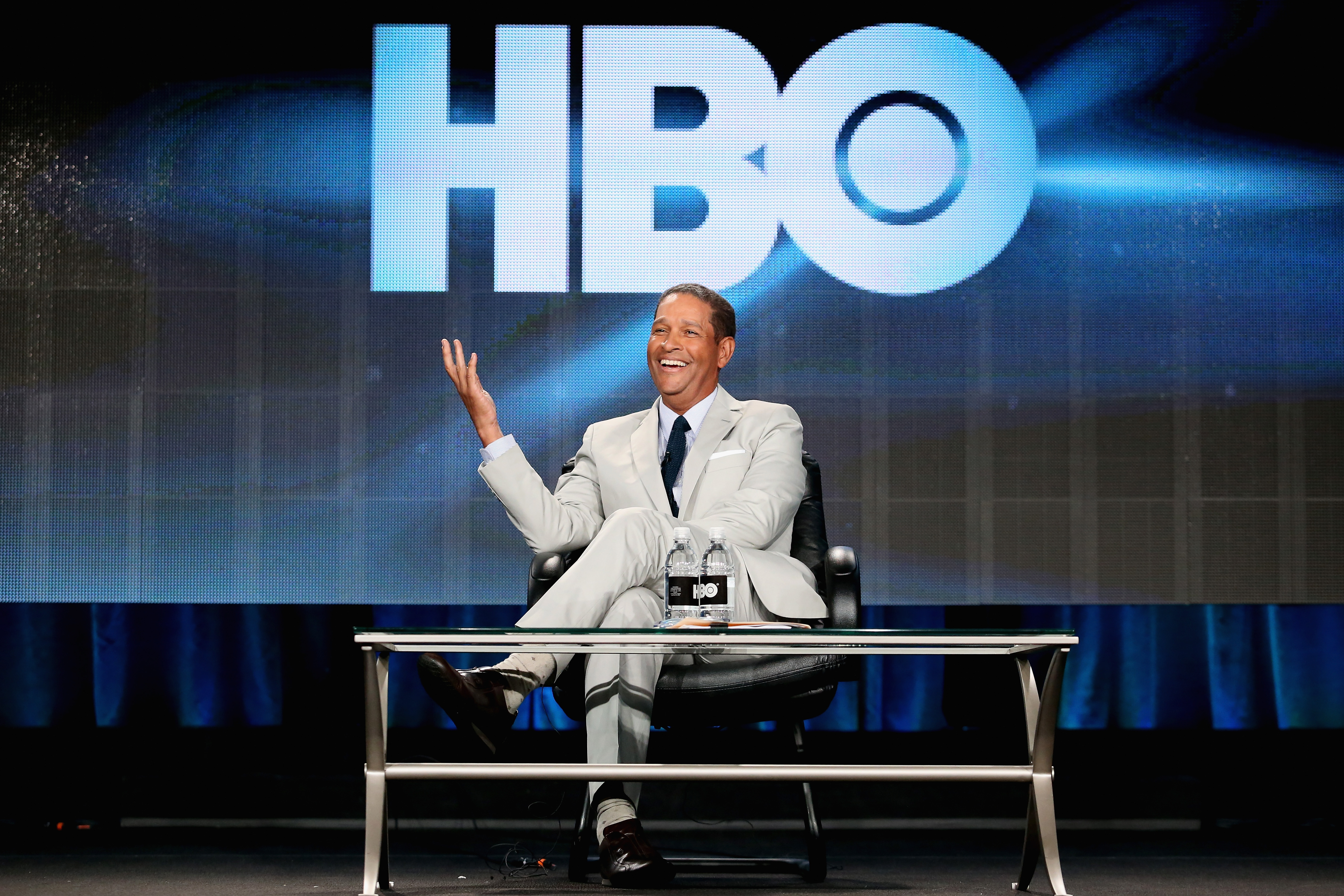Why HBO's Real Sports is more important than ever
A tribute to the one of the few truly rigorous voices in sports journalism on its 20th anniversary


A free daily email with the biggest news stories of the day – and the best features from TheWeek.com
You are now subscribed
Your newsletter sign-up was successful
Earlier this year, Real Sports with Bryant Gumbel aired two tough-to-watch segments on the physical and psychological "wreckage" of college athletics. In its clear-headed reporting on the plight of former athletes facing mounting medical bills and mental health problems — with no assistance from the NCAA or their alma maters — Real Sports delivered the same seriousness of journalistic purpose that has defined the series since its inception in 1995. With its familiar blend of investigations, features, and profiles, HBO's enterprising newsmagazine may owe its format to CBS' 60 Minutes, but for sheer determination to cover the culture, politics, and business of sports, Real Sports has always been in a league of its own.
Coming nearly two decades after Jim Lampley first reported "Broken Promises," a similarly brilliant investigative piece on fraudulent recruiting tactics at Oklahoma State, Bernard Goldberg and Jon Frankel's new segments offered a welcome reminder of Real Sports' under-appreciated, sustained, and sometimes controversial attention to the dark side of the United States’ most popular entertainment. From "The Air We Breathe" — a 2006 investigation of the connection between coal-burning power plants and childhood asthma — to correspondent David Scott's infuriating examination of Qatar's preparations for the 2022 World Cup, the series remains uniquely committed to covering the sporting world's dangerous excesses. In effect, Real Sports' central tenet has always been that any pursuit we love so dearly demands, and deserves, close scrutiny. The program’s balanced position is that of the doting parent, by turns proud and disappointed.
This is not to say Real Sports is entirely without the feel-good segments one routinely finds on Sunday morning's SportsCenter or the broadcast networks' various NFL pregame shows. (Confession: I average at least one cry per episode, most recently when correspondent Soledad O'Brien visited an athletics camp for visually-impaired children.)
The Week
Escape your echo chamber. Get the facts behind the news, plus analysis from multiple perspectives.

Sign up for The Week's Free Newsletters
From our morning news briefing to a weekly Good News Newsletter, get the best of The Week delivered directly to your inbox.
From our morning news briefing to a weekly Good News Newsletter, get the best of The Week delivered directly to your inbox.
It's not even to suggest that Real Sports' reporting is always above reproach. Gumbel's 2014 piece on "The Future of Golf" hewed to a common and rather lazy narrative of the sport's decline that I found to be vastly overstated.
But for 20 years, the series has mustered the most consistently intelligent and engaging sports journalism on television. Even O'Brien's segment I mentioned above — which might, in lesser hands, have become maudlin — included a damning assessment of how public schools have failed visually impaired student athletes.
What differentiates Real Sports from its competitors is not that it rejects the "spoonful of sugar" tactic. A typical episode might feature an interview with a colorful coach, a hard-hitting consideration of institutional malfeasance, and a rousing tale of triumph over adversity. The key to Real Sports is that the sugar itself is a form of substance. Against the high-gloss flash of ESPN's E:60, or the studied neutrality of Showtime's 60 Minutes Sports, Real Sports' unfussy, opinionated manner finds an admirable middle ground: fact-based, but never uselessly "objective"; entertaining, but never silly. Or, more simply: Real Sports replicates the impassioned conversation of your local watering hole — without the drunk dude at the end of the bar rambling about Deflategate.
This is, I suspect, the foremost mark of Gumbel's avuncular leadership, inviting correspondents into the Real Sports studio for a friendly shakedown after each segment and occasionally offering his own biting commentary on current events. Legs crossed, pen in hand, leaning forward to listen, Gumbel — part confidante, part managing editor, part sage — is the series' moral compass, and his intransigent interest is laying bare the ruthlessness, hypocrisy, and fraud of the lucrative cultural product that sports have become. (With his TODAY Show riches and unassailable reputation, he's also in a position to air his grievances without losing his job — which a less entrenched figure might well have done after comparing NBA commissioner David Stern to a plantation overseer.)
A free daily email with the biggest news stories of the day – and the best features from TheWeek.com
It is the collective impact of two decades of reporting on player health, labor rights, domestic abuse, and corruption, more than any one segment, which makes Real Sports so valuable. As newspapers and network news divisions alike shutter foreign bureaus and cut investigative resources to the quick — much less support sports reporting that reaches beyond box scores and highlight reels — Gumbel and his deep bench of producers and correspondents remain on the beat.
And if there's an old-fashioned belief in the "purity" of sports that leaves Real Sports looking, at times, like a curmudgeon, that's fine by me. One byproduct of the immense power of the NFL, the NCAA, and other similar organizations — which essentially hold the purse strings of ESPN, CBS, FOX, and company as a result of the massive advertising revenues that live sports produce — has been a pervasive obsequiousness to the public relations prerogatives of the major sports leagues.
To take one example, the problem is not, as was too often implied following the demise of Grantland, that ESPN's core reporters don't do vital, adversarial work. The problem is the fear, after the 2014 suspension of Bill Simmons after he criticized NFL commissioner Roger Goodell, that ESPN is willing to silence its own employees whenever that work threatens profit. Real Sports may seem snobbish at times, but there's rarely any doubt as to the purity of the series' motive. And in the strange, often compromised world of modern sports journalism, this kind of trust matters.
In the end, Real Sports' willingness to test the carefully cultivated détente between networks and sporting institutions is what makes it so valuable, and so compelling, even 20 years into its run. As Gumbel said of a big game hunter in a November report on elephant poachers, "I try to look for the good in people, but in the case of that Dick Cheney lookalike, I'm willing to make an exception."
It is, you might say, a rough gloss of the Real Sports credo — and as the series prepares to celebrate the end of its 20th anniversary year by reflecting on its 20 most important stories, it's also a reminder of why the series is more compelling than ever. In an era dominated by blather masquerading as analysis, and by Xs and Os instead of whos, whats, wheres, whens, and whys, Real Sports is always making exceptions — and that's what makes it exceptional.
The season finale of Real Sports with Bryant Gumbel airs Dec. 22 at 10 p.m. on HBO.
Matt Brennan is a film and television critic whose writing has appeared in LA Weekly, Indiewire, Slant Magazine, The Week, Deadspin, Flavorwire, and Slate, among other publications. He lives in New Orleans and tweets about what he's watching @thefilmgoer.
-
 What to know before filing your own taxes for the first time
What to know before filing your own taxes for the first timethe explainer Tackle this financial milestone with confidence
-
 The biggest box office flops of the 21st century
The biggest box office flops of the 21st centuryin depth Unnecessary remakes and turgid, expensive CGI-fests highlight this list of these most notorious box-office losers
-
 The 10 most infamous abductions in modern history
The 10 most infamous abductions in modern historyin depth The taking of Savannah Guthrie’s mother, Nancy, is the latest in a long string of high-profile kidnappings
